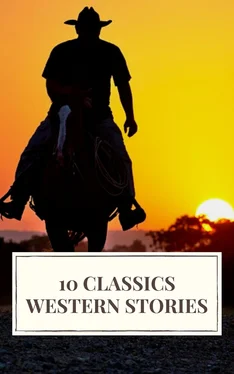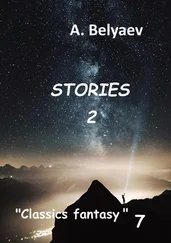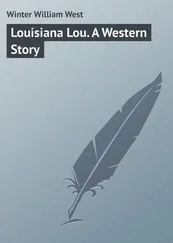Two Willamette braves then entered the circle, bringing with them one whose hands were tied behind him, whose form was emaciated with hunger and disease, but whose carriage was erect and haughty. Behind came a squaw, following him into the very presence of Multnomah, as if resolved to share his fortunes to the last. It was his wife. She was instantly thrust back and driven with brutal blows from the council. But she lingered on the outskirts of the crowd, watching and waiting with mute, sullen fidelity the outcome of the trial. No one looked at her, no one cared for her; even her husband’s sympathizers jostled the poor shrinking form aside,—for she was only a squaw, while he was a great brave.
He looked a great brave, standing there before Multnomah and the chiefs with a dignity in his mien that no reverse could crush, no torture could destroy. Haggard, starved, bound, his eyes gleamed deathless and unconquerable hate on council and war-chief alike. There were dark and menacing looks among the malcontents; in the captive they saw personified their own loss of freedom and the hated domination of the Willamettes.
“Speak! You that were a chief, you whose people sleep in the dust,—what have you to say in your defence? The tribes are met together, and the chiefs sit here to listen and to judge.”
The rebel sachem drew himself up proudly and fixed his flashing eyes on Multnomah.
“The tongue of Multnomah is a trap. I am brought not to be tried but to be condemned and slain, that the tribes may see it and be afraid. No one knows this better than Multnomah. Yet I will speak while I still live, and stand here in the sun; for I go out into the darkness, and the earth will cover my face, and my voice shall be heard no more among men.
“Why should the Willamettes rule the other tribes? Are they better than we? The Great Spirit gave us freedom, and who may make himself master and take it away?
“I was chief of a tribe; we dwelt in the land the Great Spirit gave our fathers; their bones were in it; it was ours. But the Willamettes said to us, ‘We are your elder brethren, you must help us. Come, go with us to fight the Shoshones.’ Our young men went, for the Willamettes were strong and we could not refuse them. Many were slain, and the women wailed despairingly. The Willamettes hunted on our hunting-grounds and dug the camas on our prairies, so that there was not enough for us; and when winter came, our children cried for food. Then the runners of the Willamettes came to us through the snow, saying, ‘Come and join the war-party that goes to fight the Bannocks.’
“But our hearts burned within us and we replied, ‘Our hunting-grounds and our food you have taken; will you have our lives also? Go back and tell your chief that if we must fight, we will fight him and not the Bannocks.’ Then the Willamettes came upon us and we fought them, for their tyranny was so heavy that we could not breathe under it and death had become better than life. But they were the stronger, and when did the heart of a Willamette feel pity? To-day I only am left, to say these words for my race.
“Who made the Willamettes masters over us? The Great Spirit gave us freedom, and none may take it away. Was it not well to fight? Yes; free my hands and give me back my people from the cairns and the death-huts, and we will fight again! I go to my death, but the words I have spoken will live. The hearts of those listening here will treasure them up; they will be told around the lodge-fires and repeated in the war-dance. The words I speak will go out among the tribes, and no man can destroy them. Yes, they go out words, but they will come back arrows and war in the day of vengeance when the tribes shall rise against the oppressor.
“I have spoken, my words are done.”
He stood erect and motionless. The wrath and disdain passed from his features, and stoicism settled over them like a mask of stone. Multnomah’s cold regard had not faltered a moment under the chief’s invective. No denunciation could shake that iron self-control.
The rebellious chiefs interchanged meaning glances; the throng of malcontents outside the grove pressed closer upon the ring of Willamette warriors, who were still standing or squatting idly around it. More than one weapon could be seen among them in defiance of the war-chief’s prohibition; and the presage of a terrible storm darkened on those grim, wild faces. The more peaceably disposed bands began to draw themselves apart. An ominous silence crept through the crowd as they felt the crisis approaching.
But Multnomah saw nothing, and the circle of Willamette warriors were stolidly indifferent.
“Can they not see that the tribes are on the verge of revolt?” thought Cecil, anxiously, fearing a bloody massacre.
“You have heard the words of the rebel. What have you to say? Let the white man speak first, as he was the last to join us.”
Cecil rose and pictured in the common Willamette tongue, with which he had familiarized himself during his long stay with the Cayuses, the terrible results of disunion, the desolating consequences of war,—tribe clashing against tribe and their common enemies trampling on them all. Even those who were on the verge of insurrection listened reverently to the “white wizard,” who had drawn wisdom from the Great Spirit; but it did not shake their purpose. Their own dreamers had talked with the Great Spirit too, in trance and vision, and had promised them victory over the Willamettes.
Tohomish followed; and Cecil, who had known some of the finest orators in Europe, listened in amazement to a voice the most musical he had ever heard. He looked in wonder on the repulsive features that seemed so much at variance with those melodious intonations. Tohomish pleaded for union and for the death of the rebel. It seemed for a moment as if his soft, persuasive accents would win the day, but it was only for a moment; the spell was broken the instant he ceased. Then Snoqualmie spoke. One by one, the great sachems of the Willamettes gave their voices for death. Many of the friendly allies did not give their decision at all, but said to Multnomah,—
“You speak for us; your word shall be our word.”
When the dissatisfied chiefs were asked for their counsel, the sullen reply was given,—
“I have no tongue to-day;” or “I do not know.”
Multnomah seemed not to notice their answers. Only those who knew him best saw a gleam kindling in his eyes that told of a terrible vengeance drawing near. The captive waited passively, seeming neither to see nor hear.
At length all had spoken or had an opportunity to speak, and Multnomah rose to give the final decision. Beyond the circle of Willamettes, who were still indifferent and unconcerned, the discontented bands had thrown aside all concealment, and stood with bared weapons in their hands; all murmurs had ceased; there was a deathlike silence in the dense mob, which seemed gathering itself together for a forward rush,—the commencement of a fearful massacre.
Behind it were the friendly Cayuses, but not a weapon could be seen among them. The chief saw all; saw too that his enemies only waited for him to pronounce sentence upon the captive,—that that was the preconcerted signal for attack. Now among some of the tribes sentence was pronounced not by word but by gesture; there was the gesture for acquittal, the gesture for condemnation.
Multnomah lifted his right hand. There was breathless suspense. What would it be? Fixing his eyes on the armed malcontents who were waiting to spring, he clinched his hand and made a downward gesture, as if striking a blow. It was the death-signal, the death-sentence.
In an instant a deafening shout rang through the grove, and the bloodthirsty mob surged forward to the massacre.
Then, so suddenly that it blended with and seemed a part of the same shout, the dreaded Willamette war-cry shook the earth. Quick as thought, the Willamettes who had been lounging so idly around the grove were on their feet, their blankets thrown aside, the weapons that had been concealed under them ready in their hands. A wall of indomitable warriors had leaped up around the grove. At the same moment, the Cayuses in the rear bared their weapons and shouted back the Willamette war-cry.
Читать дальше












